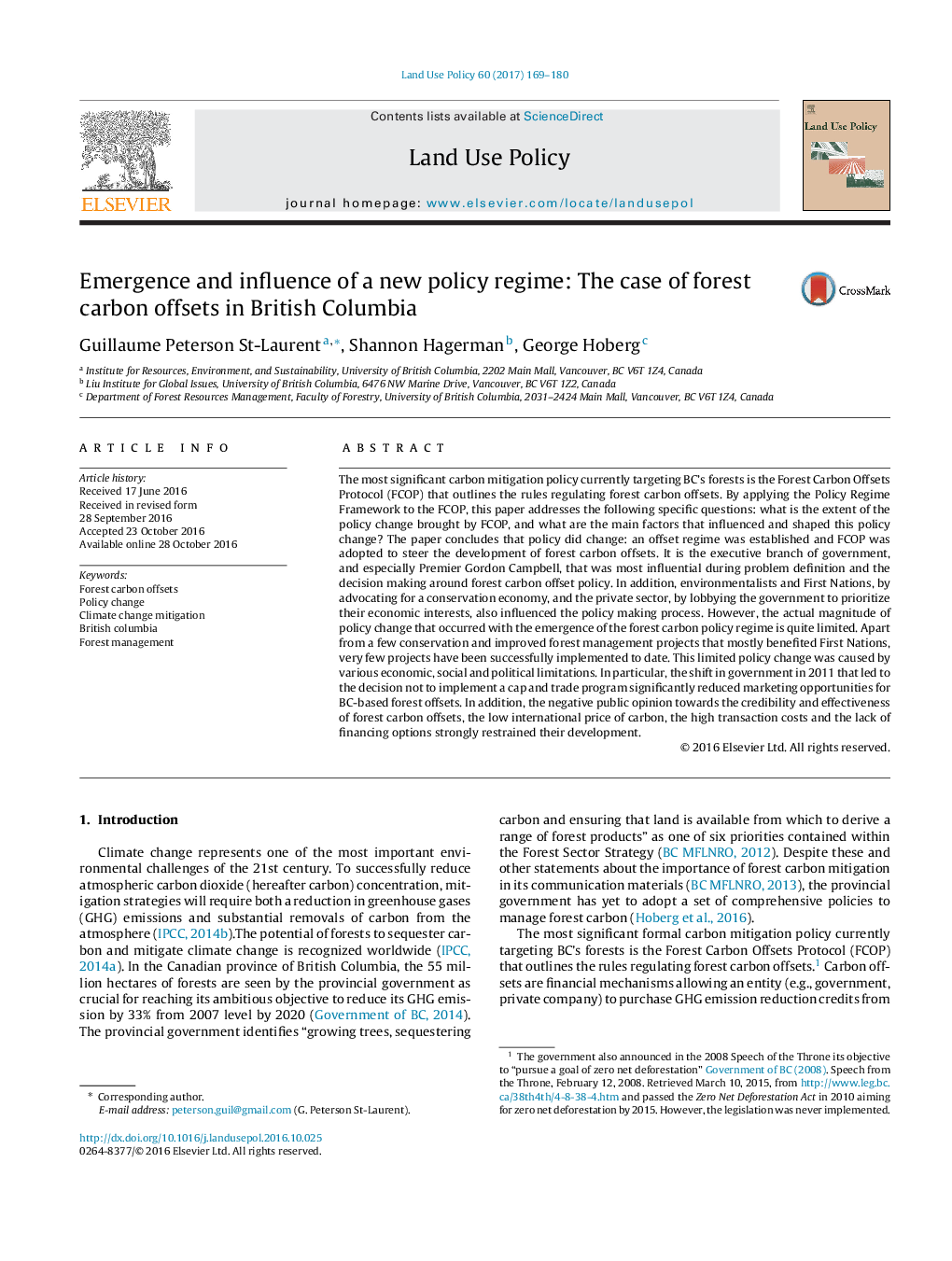| کد مقاله | کد نشریه | سال انتشار | مقاله انگلیسی | نسخه تمام متن |
|---|---|---|---|---|
| 6461403 | 1421823 | 2017 | 12 صفحه PDF | دانلود رایگان |
- British Columbia adopted a Forest Carbon Offset Protocol (FCOP) in 2011.
- This paper evaluates the extent of, and drivers behind, this policy change.
- Key actors, above all BC's Premiers, influenced the development of the program.
- Forest carbon offsets face important economic, social and political limitations.
- Thus far the policy change brought by the implementation of the FCOP is limited.
The most significant carbon mitigation policy currently targeting BC's forests is the Forest Carbon Offsets Protocol (FCOP) that outlines the rules regulating forest carbon offsets. By applying the Policy Regime Framework to the FCOP, this paper addresses the following specific questions: what is the extent of the policy change brought by FCOP, and what are the main factors that influenced and shaped this policy change? The paper concludes that policy did change: an offset regime was established and FCOP was adopted to steer the development of forest carbon offsets. It is the executive branch of government, and especially Premier Gordon Campbell, that was most influential during problem definition and the decision making around forest carbon offset policy. In addition, environmentalists and First Nations, by advocating for a conservation economy, and the private sector, by lobbying the government to prioritize their economic interests, also influenced the policy making process. However, the actual magnitude of policy change that occurred with the emergence of the forest carbon policy regime is quite limited. Apart from a few conservation and improved forest management projects that mostly benefited First Nations, very few projects have been successfully implemented to date. This limited policy change was caused by various economic, social and political limitations. In particular, the shift in government in 2011 that led to the decision not to implement a cap and trade program significantly reduced marketing opportunities for BC-based forest offsets. In addition, the negative public opinion towards the credibility and effectiveness of forest carbon offsets, the low international price of carbon, the high transaction costs and the lack of financing options strongly restrained their development.
Journal: Land Use Policy - Volume 60, January 2017, Pages 169-180
